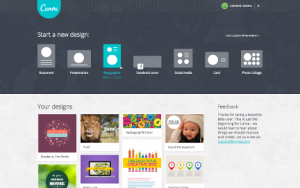For Internet Marketers, social media is often the best representation of who we are as marketers and people. Facebook, Twitter, and Instagram, allow us to connect with one another. And because we use social media for both our personal lives, as well as our business, we need to be mindful of what we say. As Mark Zuckerburg learned in The Social Network, “The Internet’s not written in pencil. It’s written in ink.”

(Photo Credit: The Social Network. Dir. David Fincher. Columbia Pictures, 2010. Film. IMDB)
Social media has the potential to open a lot of doors for you with both affiliates and customers. It also has the power to slam them closed if you alienate people by spamming offers, tagging people who are in the middle of another launch, and digital bullying of any kind. Knowing what’s acceptable and what isn’t is the key to happy, healthy relationships on social media and in business.
The prevalence of social media has literally shifted the way we communicate with one another. Communication has changed and has become more cold and detached than the good ‘ole days. We now have to contend with the “digital divide”.
The digital divide is the social disconnection caused by the separation of communicating parties due the use of digital devices and “the web” as a communication platform. Although social media allows two people to connect from across the world, it also provides a shield for malicious actors. Because the social interactions take place through computer screens, some people will make statements to someone online that they would never say to in-person.
PRO-TIP:You can break the digital divide very easily — just go to live networking events! Many marketers have caught their “big break” (so to speak) by simply shaking hands in person with people they previously only knew or “chatted with” online.
Social media plays a huge role in your career as an Internet Marketer. How you behave and what you post may potentially determine who works with you and who doesn’t. (Of course, you’ll have the same discretion.) Understanding how to manage your social media presence is a necessary step in the journey to Internet Marketing success.
YOU DON’T GET A SECOND CHANCE TO MAKE A FIRST IMPRESSION
If you want a social brand that goes the distance, you’ll need to set up your social media profiles to make a strong first impression. This means you have to look at your Facebook profile as through the eyes of someone who doesn’t know, but may want to work with you. What should that person think of you as if what they see is all they know?
PRO-TIP:Consider the images you’re posting to your photo albums. Do any of them show you in a bad light? For example, are you passed out drunk in your profile picture? This is the first impression someone will get about you. It might not be who you really are, but those who stumble upon your profile won’t know otherwise.
Try looking at your profile from the business perspective. Use a profile picture that clearly shows your face. Your cover photo should also be an image that leaves a good first impression. Everything that you post, whether picture or text, should pass a “business filter”.
ASK YOURSELF:
Does this hurt my brand?
Let’s talk about your regular, non-business friends. Of course, you’re free to share some personal details about your life. You can share some photos of your last hiking trip through the Grand Canyon. Sharing your personal side may actually bring your business partners closer to you since they can relate to your stories. Thats kind of, thew whole point for using social media in business. To “humanize” you rather than alienate you.
Once you’ve started business as an Internet Marketer, you’re going to want to add a few contact details to your profile. Let’s say you’ve won a JV contest, but aren’t Facebook friends with the vendor. The vendor is going to want to get ahold of you to arrange the Paypal transfer. If they try to private message you (PM’ing as it’s known), their message may end up in your “Message Requests” folder and it may be a while before you see it. It’s easier to put a business phone number or an email on your profile to insure anyone can contact you easily.
Remember that Facebook keeps a history of the places you’ve checked-in and posts from years ago (especially pictures). If a picture from 7 years ago pops up on your Memories, you might want to think twice about sharing it publicly now that you’ve started your business.
Facebook will also store the pages you’ve liked in the past. And from time to time, Facebook will advertise a product using your support as social proof. For example, if your friend Tom, Dick, and Harry like Netflix, then when an ad for Netflix shows up in your Newsfeed, you’ll see at the top something like, “Tom, Dick, and Harry like Netflix.” This is something you’ll want to keep in mind the next time you’re about to click the Like button.
As long as your pictures and posts are suitable for a business environment, you should make a great first impression. You can share personal stories, opinions, and pictures from your latest adventures… they may even help you bond with other Internet Marketers. But just remember that you don’t get a second chance to make a first impression. So keep everything you post in public suitable for business and you’ll be okay.
PLAY NICE IN SOCIAL MEDIA GROUPS
The way you interact in social media groups like Facebook Groups or Google Hangouts and even Skype groups is another area in which your actions will be judged by others. It’s just like your profile. You’re going to build part of your reputation based on your profile and part based on how you interact in various groups.
Groups give you the outlet to make posts you would rather keep off your wall and out of the Newsfeed as well. (Other members of the group will see what you posted in the group in their Newsfeed.) So for example, if you have political leanings that may alienate important business partners, you may want to consider posting your thoughts in a like-minded group instead of on your main wall. Many marketers feel this is better for everyone.
The first thing you should keep in mind when participating in groups is to provide value . You’ll want to introduce yourself to the group and maybe ask a question to get a conversation started. You’re going to want to focus on providing a positive persona before you consider any business. If someone has asked a question that you can answer, answer it. If you found an article that’s relevant to the group, you can generally share that as well.
The Party Principle is a good principle to follow when you’re on social media. Most people aren’t looking to conduct business all the time when they’re on Facebook. They’re looking to have a good time getting to know people. Imagine being at a casual weekend party and someone shows up in a suit and starts handing out business cards. How uncomfortable and tacky is that? You don’t want to be the person shows up to a party just for business. You want to have a good time. The same applies on social media. Don’t just approach people because you have business to discuss. Take the time to get to know them and they’ll let you know when they’re ready to talk shop.
You’ll also want to read the rules of the group. Many group owners don’t allow affiliate links or launch announcements to be made without prior permission. So be sure to read those rules prior to posting anything other than an introduction. If you want to post something the owner may find objectionable, then privately message one of the administrators for permission to post.
Just as you monitor what you post on your wall, so should you monitor what you post in groups. Groups can potentially lead to more freedom due to the common interest, but that doesn’t mean you can walk in and pitch a product. You still have to be cognizant of what you post and when.
SPAGGING (SPAM-TAGGING) IS A FAST WAY TO ANGER A LOT OF AFFILIATES
When conducting a launch, it’s very tempting to make a Facebook post about your launch and tag everyone you know, and even big marketers like Frank Kern and Mike Filsaime, so they’ll see your post. Also, the followers of the “taggees” will also see the post as well. Unfortunately, this can be one of the fastest ways to destroy your business relationships with prevalent marketers.
Serious marketers plan their use of social media. Once they start marketing their launch, they won’t want to be tagged in other product launches — except if they’re mailing and on the leaderboard. Getting tagged in posts that aren’t congruent with their plans really annoys the big gurus.
PRO-TIP:When you tag someone on Facebook, it can be interpreted as entering their personal space. This is also true when you’re privately messaging someone you do not know well or don’t know at all.
Some marketers may view unwanted tagging as the equivalent of social media spam. Delilah Taylor of the JVManagers coined the term “Spagging” to describe the behavior of tagging people without their prior consent, usually en masse.
If you’re networking with people and getting to know them, you’ll get a sense of when it’s okay to tag them and when not to. Let your common sense and good judgement guide you to decide whether to tag or not to tag.
YOUR SOCIAL MEDIA PICTURES ARE WORTH 1000 WORDS
Whenever you change your Facebook profile picture or cover picture, it attracts a lot of attention. The same is true when you change the cover picture for a group you own. You’ll want to take advantage of this natural attention grabber every time you’re doing a big launch or affiliate campaign.
You should consider changing your cover photo for your profile and any groups you own to an attractive image of the product you’re promoting. This will help drive attention to your campaign. You’ll also create a stronger sense of congruence for your followers to absorb. The cover photo(s) are an extra marketing space you can tap into with just the cost of making the images.

PRO-TIP:There are a few different softwares that allow you to easily create Facebook images. One that you may enjoy is call Canva. It has templates and a large vault of photos you can use to create your cover pictures.
Another strategy you can use is to add images to your Facebook posts just like we do here at JVZoo. Surely you’ve noticed our regular Facebook posts which start with a professionally created photo. That’s no accident. We recognize the value that quality images bring both to the post itself as well as our social media branding overall.
If you want to take your social media presence to the next level, plan out a series of posts. Write each one down and the day you want to post it. Then create an image for each post. It’s a very simple way to keep your audience engaged with your posts.
PERSISTENT POSTING PROVIDES POSITIVE PRESENCE
If you want your posts to get a lot of engagement, you must post engaging content consistently. We all have Facebook friends who virtually never post. Generally speaking, being inactive on social media won’t really help your Internet marketing career. Facebook looks at how often you post and how many likes you get. This determines how popular you are and how relevant the content is to your friends list.
Facebook uses an algorithm to determine what should be displayed in the Newsfeed of each user. Therefore, to get your posts to show up in more user’s feeds, you have to create content that Facebook’s algorithm can determine to be high value to your friends list. And fair warning, the algorithm takes in about 100,000 factors.
You’re going to want to consider a strategy for consistent posting if you’re not naturally a big poster. Take a calendar out and write a post for each day to insure you have something to post. You can post your own thoughts on Internet Marketing (be very careful), ask questions to your list, post funny pictures, and share news articles. Commenting on other people’s posts is also a good idea. The IM attracts its fair share of introverts, so if that’s you, then you’ll just need to adopt a deeper strategy.
PRO-TIP:If you’re really great at getting engagement with your posts, consider offering social media services to those who need some assistance.
At the end of the day, an effective social media presence that wins JV’s and attracts customers will require consistent effort. It’s a necessary step if you want to build the kinds of online relationships that will lead you to your success in Internet Marketing. Be sure to visit the official JVZoo Facebook page and click the “like” button so you’ll always be “in the loop” of what we’re doing on social media!

